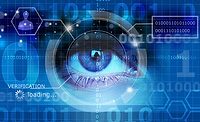Nearly Half of Americans Likely to Use Voice Recognition for Personal Verification

A new Pindrop survey has found the vast majority (81%) believe there are benefits to using voice recognition as a form of personal verification.
Not only do 81% find benefits, said the survey, but nearly half of Americans (48%) said they would be likely to use voice recognition as a form of personal verification.
The study also assessed consumer engagement with financial institutions, retailers, healthcare providers and other major omnichannel organizations. Findings indicate that roughly half of Americans contacted financial service companies (49%), healthcare companies (59%), insurance companies (54%), and telco companies (60%), via phone with a customer service inquiry in the last 12 months. About one in ten Americans contacted healthcare companies (15%), insurance companies (9%) and financial service companies (11%) via phone more than five times per year.
Consumer Frustration
Consumers may be dissatisfied with current verification methods used to protect their personal information. More than one in four Americans who have accessed an account at a healthcare company (28%) or TV/telecom company (27%) by phone expressed frustration with their experience. Among those who have found it difficult to access their accounts* by phone, burdensome requirements to answer numerous identity verification questions is the cause of this difficulty for over one quarter of them (28%). Additionally, nearly one in five (18%) have found it difficult because they forgot the answers to their security questions and were locked out of their accounts.
“We are ushering in a new era of passive voice authentication that will create opportunities for brands to interact with their customers,” said Scott Rose, SVP of Product, Pindrop. “As consumers go beyond their phones and increase interactions with voice activated devices, it is crucial not to confuse personalization with security and identification.”
Fear, Uncertainty, and Doubt Abound
One key finding in the study highlights that roughly four out of five Americans (81%) believe there are benefits to using voice recognition as a form of personal verification. However, concerns remain as 94% believe there are drawbacks to this process. The top reasons for concern include:
- 61%: May not work well because of background noise (channel independence)
- 60%: May not work accurately every time (low EER)
- 48%: Voice can be cloned and used against them (voice spoofing)
- 43%: May have difficulty recognizing accents
- 39%: May not be secure
- 36%: Requires you to speak loudly and clearly (channel independence)
- 31%: Lack of info on how voice as personal verification works
“In January, Pindrop released the first-of-its-kind Deep Voice™ biometric engine that is able to recognize a consumer by their voice, even with short command-like utterances in a passive manner,” Rose said. “Pindrop®Labs first looked at the limitations of current voice biometrics and specifically designed a voice biometric engine, in a deep neural architecture, that addresses the top consumer concerns such as channel independence, the emerging threat of voice synthesis and accuracy rates.”
The Frictionless Conversational Economy
In the emerging conversational economy, brands are reimagining voice activated consumer experiences. Enterprise level security and multi-factor authentication is the necessary next step for all industries creating new opportunities for frictionless customer experiences. As more channels become voice-activated, fraudsters will leverage emerging technologies such as voice synthesis to impersonate consumers. Today, voice fraud costs organizations in the U.S. $14 billion each year within call centers alone.
Looking for a reprint of this article?
From high-res PDFs to custom plaques, order your copy today!







